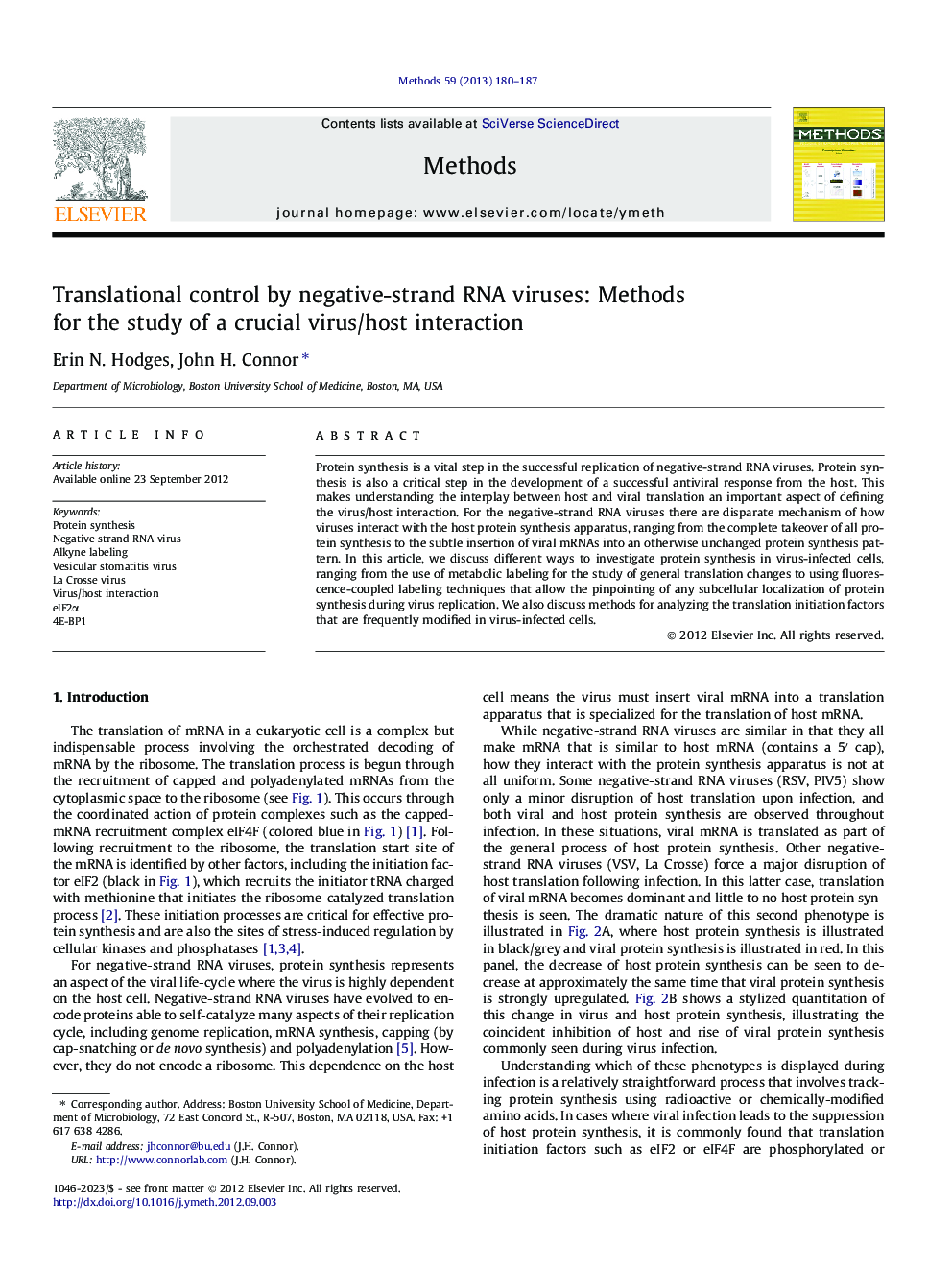| Article ID | Journal | Published Year | Pages | File Type |
|---|---|---|---|---|
| 1993720 | Methods | 2013 | 8 Pages |
Protein synthesis is a vital step in the successful replication of negative-strand RNA viruses. Protein synthesis is also a critical step in the development of a successful antiviral response from the host. This makes understanding the interplay between host and viral translation an important aspect of defining the virus/host interaction. For the negative-strand RNA viruses there are disparate mechanism of how viruses interact with the host protein synthesis apparatus, ranging from the complete takeover of all protein synthesis to the subtle insertion of viral mRNAs into an otherwise unchanged protein synthesis pattern. In this article, we discuss different ways to investigate protein synthesis in virus-infected cells, ranging from the use of metabolic labeling for the study of general translation changes to using fluorescence-coupled labeling techniques that allow the pinpointing of any subcellular localization of protein synthesis during virus replication. We also discuss methods for analyzing the translation initiation factors that are frequently modified in virus-infected cells.
Graphical abstractFigure optionsDownload full-size imageDownload as PowerPoint slide
